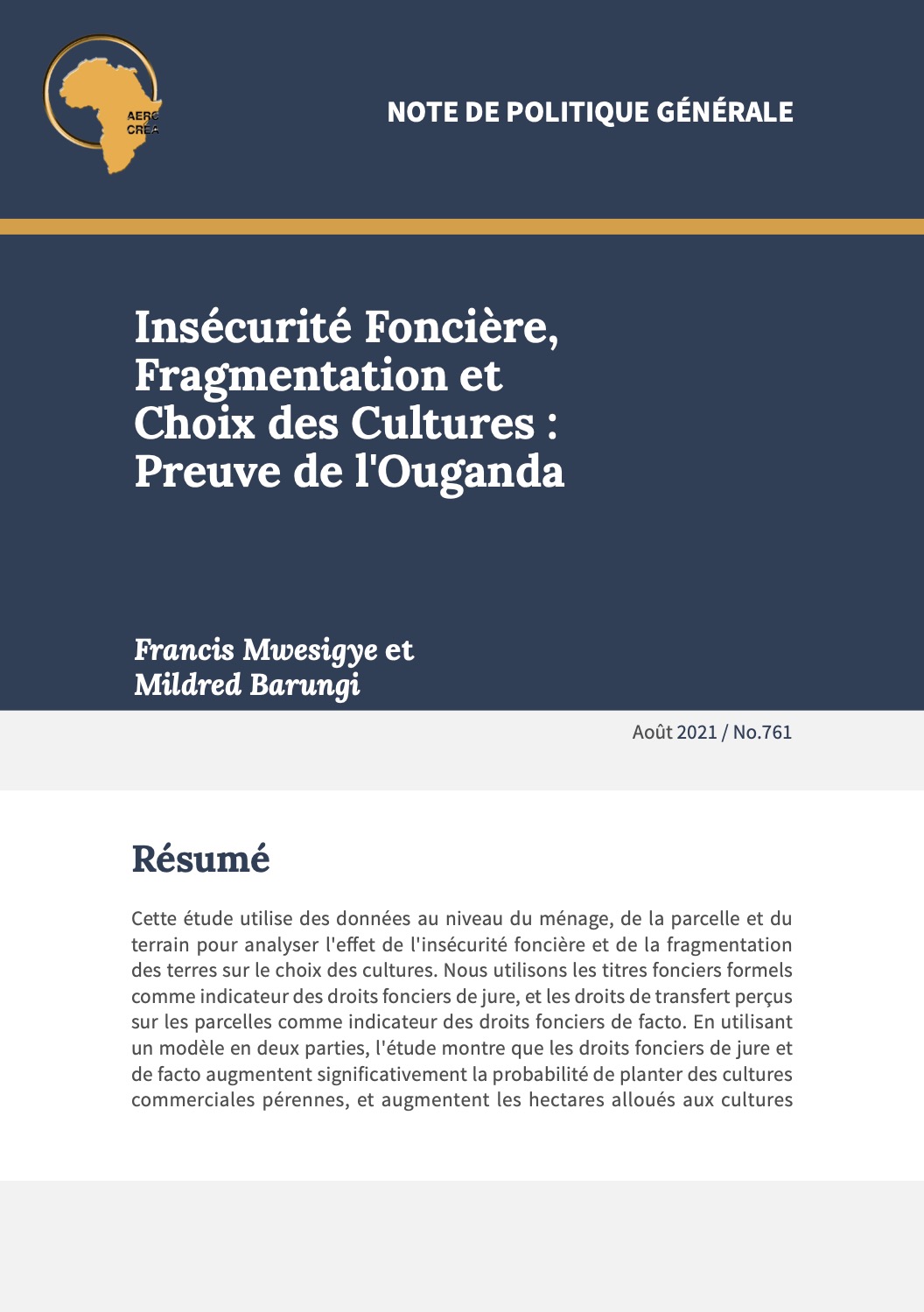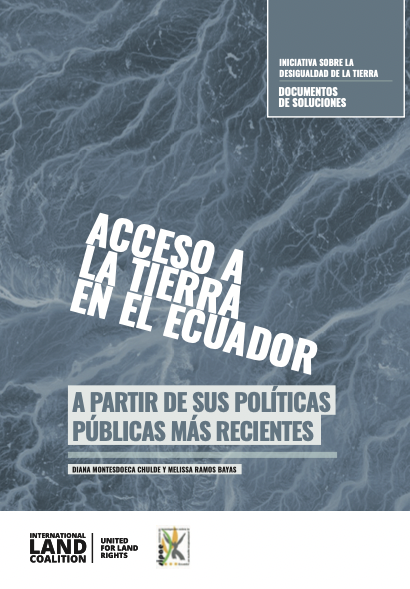Insécurité Foncière, Fragmentation et Choix des Cultures : Preuve de l'Ouganda
Cette étude utilise des données au niveau du ménage, de la parcelle et du terrain pour analyser l'effet de l'insécurité foncière et de la fragmentation des terres sur le choix des cultures. Nous utilisons les titres fonciers formels comme indicateur des droits fonciers de jure, et les droits de transfert perçus sur les parcelles comme indicateur des droits fonciers de facto.









